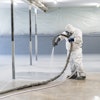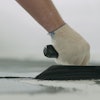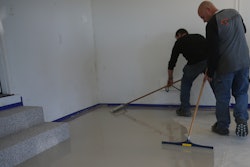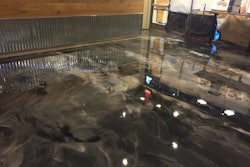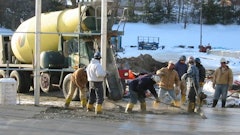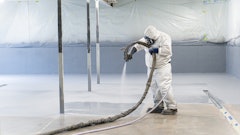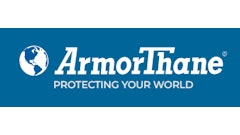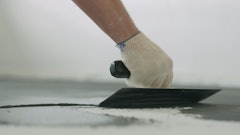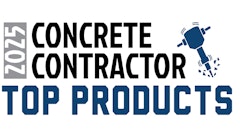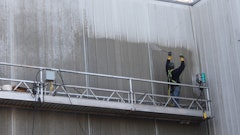
Contractors are usually on the first line of defense when it comes to advising clients on the longevity and durability of their concrete structures. While solutions like migrating corrosion inhibitors are excellent for addressing rebar corrosion, it's crucial to recognize that concrete floors face their own unique set of threats.
Heavy traffic, chemical spills, and the need for stringent hygiene can all compromise the integrity of a concrete floor long before corrosion even becomes a factor. This is where the contractor's expertise in recommending and installing protective coatings becomes invaluable.
Identifying the Need:
Helping Your Clients Understand the Risks
Your clients might not always be aware of the long-term consequences of neglecting their concrete floors. They can be guided by highlighting scenarios where a protective coating is not just beneficial, but essential. Consider these talking points based on common applications.
For Garage and Automotive Areas: With heavy vehicles and potential spills of oils, solvents, and other automotive fluids, uncoated concrete can quickly become stained, damaged, and even structurally compromised over time. A protective coating creates a durable, easy-to-clean barrier.
For Dairy and Food Processing Facilities: In environments with constant exposure to moisture, milk byproducts, and aggressive cleaning agents, maintaining hygiene and preventing concrete degradation is critical. A seamless, chemical-resistant coating meets these demands and often helps comply with regulatory standards.
For Manufacturing Plants: Depending on the industry, your facility might face exposure to a wide range of chemicals. Without a proper coating, these substances can penetrate the concrete, leading to deterioration and potential safety hazards. A chemically resistant epoxy coating offers vital protection.
For Food Service and Federally Inspected Facilities: Meeting stringent cleanliness standards is paramount in these environments. An epoxy coating provides a non-porous, easy-to-sanitize surface that helps comply with regulations and prevents the harboring of bacteria and contaminants.
Presenting the Solution:
Why Epoxy Coatings are a Go-To
Once you've helped your client identify the risks, you can confidently present epoxy coatings as a proven solution. Here's how you can frame the benefits.
Durability and Resistance: Epoxy coatings are known for their exceptional toughness and resistance to abrasion, impact, and heavy loads. This means a longer-lasting floor that can withstand the daily demands of your operations.
Chemical Protection: Specific epoxy formulations offer excellent resistance to a broad range of chemicals, preventing them from penetrating and damaging the concrete matrix. Check with your supplier or the manufacturer of your epoxy coating product for chemical resistance guides to tailor the coating selection.
Ease of Maintenance: Coated concrete floors are significantly easier to clean and maintain than bare concrete. The smooth, non-porous surface prevents the absorption of liquids and dirt, saving time and resources on cleaning.
Enhanced Safety: Epoxy coatings can be customized with non-slip additives to improve safety and reduce the risk of slips and falls, especially in areas prone to spills or moisture.
Aesthetics: Beyond protection, epoxy coatings can also enhance the appearance of a space with various colors and finishes, creating a more professional and organized environment.
Epoxy coatings are a go-to for protecting concrete floors with high traffic or chemical exposure. There are floor coatings available utilising migratory corrosion inhibitor technology that use traditional novolac epoxy chemistry to achieve a high degree of physical and chemical resistance. These epoxy coatings protect concrete surfaces from aggressive industrial environments and prevent the intrusion of corrosive elements that would otherwise attack cementitious materials and steel reinforcement while meeting all USDA/FDA guidelines for use in federally inspected facilities.
 Migrating corrosion inhibitors are a versatile and budget-friendly option. Applied as an admixture or a surface treatment, a migrating corrosion inhibitor's chemistry works its way through concrete pores and forms a protective molecular layer on the surfaces of metal reinforcement due to an ionic attraction. Hence, it can protect an entirely uncoated rebar or molecularly fill in damaged areas on an epoxy-coated rebar where the metal is exposed.Cortec Corporation
Migrating corrosion inhibitors are a versatile and budget-friendly option. Applied as an admixture or a surface treatment, a migrating corrosion inhibitor's chemistry works its way through concrete pores and forms a protective molecular layer on the surfaces of metal reinforcement due to an ionic attraction. Hence, it can protect an entirely uncoated rebar or molecularly fill in damaged areas on an epoxy-coated rebar where the metal is exposed.Cortec Corporation
As is characteristic of epoxy coatings, they contain zero VOC (EPA Method 24). Their range of chemical resistance is broad, making it useful for many different manufacturing environments. A companion chemical resistance guide shows the degree of resistance epoxy coatings based on migratory corrosion inhibitor technology have toward a variety of chemicals, including organic and inorganic acids, solvents, alcohols, ketones/esters, alkalis and salts, oils, and even miscellaneous food items like juice, peanut butter, milk, mustard, and mayonnaise!
Know Your Concrete Protection Portfolio
There are many ways to enhance the durability and service life of reinforced concrete. In addition to adding migrating corrosion inhibitors to various outdoor structural components, it is good to be familiar with epoxy coatings — which can be an important preventative maintenance option for indoor floors.
Contractors are the experts who can translate the technical benefits of epoxy coatings into tangible advantages for their clients. By proactively identifying potential floor damage and presenting epoxy coatings as a reliable and long-term solution, contractors can position themselves as a trusted advisor dedicated to protecting their valuable assets and ensuring the safety and efficiency of their operations.

